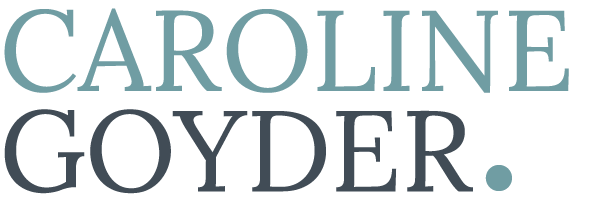So you have the big pitch.
Or the big job interview.
Or you have to walk out on stage in front of 4,000 people.
And you know something goes wrong inside to sabotage you. You know this because there are some horrible side effects of stress. They not only feel bad, they make you sound bad too.

You speak too fast. You feel yourself breathing shallowly. You rush. Your voice shakes. Your hands shake. You go blank. Your mouth gets dry. It is all a blur, you can’t even remember what you said, fight or flight.
I was working with someone recently who feels completely held back by this, and she was convinced that she could never change it. It felt to her as if it was a curse she was permanently stuck with. It meant that she spent days, even weeks, sometimes dreading big meetings or presentations, and it meant that in the middle of high stakes moments she would find herself speaking too fast, out of control, saying the wrong thing. All the worry was taking up a huge amount of energy and time.
But what I know, and what she discovered – to her and to my delight – is that panic can be turned into power much faster than you realise. There’s a kind of alchemy to do just that when you know how.
This alchemy is known scientifically as self regulation aka calming yourself down, and staying calm when you speak. We are often taught mindfulness and yoga and other tools to calm ourselves down. But we aren’t taught how to use them when we speak and we often aren’t aware of the big bad habit that derails our calm and confidence when we speak.
The single biggest derailer to your calm, and the key to turning panic into power?
Cut the “gasp” (the mouth-breath that we do when we are stressed).

Think about the relaxed way you pause for breath when you chat to friends.
Now think about how often you rush and pull the breath in through the mouth accompanied with an um or an er when we are nervous.
How to cut the gasp in 3 steps:
Step One
Notice it in yourself.
I want you to do this now: pull in a breath by lifting up your shoulders and chest and gasping it into your mouth. Notice it has an effect on how you feel – you might start to feel more stressed, your thoughts may be speedier. Why? The body knows this as panic breathing and starts to create panic thinking. This leads quickly into fast panic speaking.
Step Two
Noticing it in others can also help.
– You will recognise the gasp by the sound as it comes via the speaker’s mouth.
– You will see it in the chest, as the shoulders and chest pull a fast panicked breath in quickly.
– You will feel it in a tension as you listen.
– Or you might notice that the speaker is speaking so fast that you feel distracted or you might sense a tension and speed in the voice, you might hear the noisy chest breath you hear in nervous speakers. Gasping the breath in audibly via the chest and shoulders takes you straight to panic, because it’s what we do when we have to panic or run away. It’s effortful and it stresses out your system instantly.
Step Three
Become self aware.
The best way to do this is often by some self observation. Record yourself on zoom or on your phone as you speak.
If you’re not sure whether you gasp, record yourself when you are speaking – on film or just use the voice recording function on your phone. Can you hear a gasp? If you film yourself, you will see your shoulders and chest move as you breathe in, as well as hearing the gasp.
Then if you notice you are gasping do this as a practice:
On every full stop Slow Down. Close your mouth and let the breath flow in through your nose like a lovely smell.

It will feel slow at first but when you keep doing it you will notice that you are much more calm, conversational and in control. You can stay calm, sentence by sentence because you have cut the gasp. Your panic recedes and your power emerges.
It’s a kind of magic, use it well!
I shared a short video about this earlier in the week which you can watch by clicking on the link below.
To watch my weekly videos please subscribe to my Youtube channel so you receive a little notification each time a video is released.



